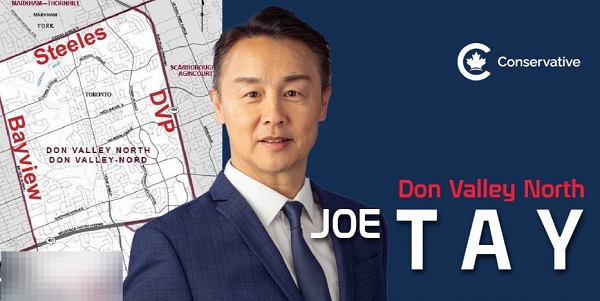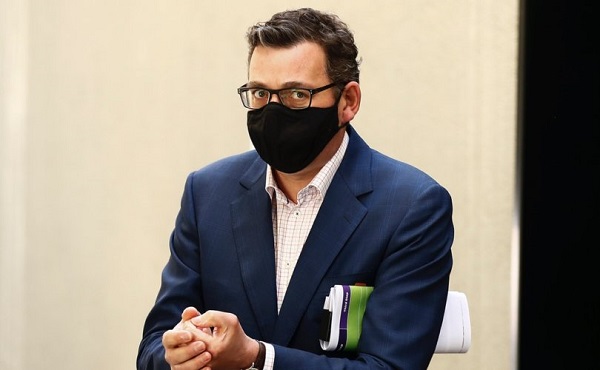International
Telegram founder Pavel Durov criticizes French authorities in first statement after his arrest

From LifeSiteNews
The Telegram CEO implied that French authorities had not tried to reach out to him before his arrest and stressed that if a government was dissatisfied with how an internet service operates, it should start legal action against the company instead of arresting its owner.
Telegram co-founder and CEO Pavel Durov criticized French authorities for his surprising arrest in Paris.
In his first public statement after being released from jail on bail, Durov said that he was questioned by French police for four days and he “was told I may be personally responsible for other people’s illegal use of Telegram, because the French authorities didn’t receive responses from Telegram.”
The Telegram founder said that his arrest was “surprising for several reasons” because Telegram employs a representative that replies to legal requests from the EU and French authorities “had numerous ways to reach me to request assistance,” implying that they had not tried to reach out to him before his arrest.
Moreover, he stressed that if a government was dissatisfied with how an internet service like Telegram operates in its country, it should start legal action against the company instead of arresting its owner.
“Using laws from the pre-smartphone era to charge a CEO with crimes committed by third parties on the platform he manages is a simplistic approach,” Durov wrote. “Building technology is hard enough as it is. No innovator will ever build new tools if they know they can be personally held responsible for potential abuse of those tools.”
The Telegram CEO said that “the right balance between privacy and security is not easy” and revealed that Telegram had often been at odds with governments and that if they were not able to find this balance between security and privacy, “we are ready to leave that country.”
“We’ve done it many times,” he recalled. “When Russia demanded we hand over ‘encryption keys’ to enable surveillance, we refused — and Telegram got banned in Russia.”
“When Iran demanded we block channels of peaceful protesters, we refused — and Telegram got banned in Iran.”
“We are prepared to leave markets that aren’t compatible with our principles, because we are not doing this for money. We are driven by the intention to bring good and defend the basic rights of people, particularly in places where these rights are violated.”
Durov said that Telegram is “not some sort of anarchic paradise” like some media outlets claim, rather it does regularly take down channels and post that are “harmful.”
“However, we hear voices saying that it’s not enough,” he said regarding censorship on the platform. “Telegram’s abrupt increase in user count to 950M caused growing pains that made it easier for criminals to abuse our platform. That’s why I made it my personal goal to ensure we significantly improve things in this regard.”
Durov was arrested on August 24 after his private jet landed at Le Bourget airport just outside of Paris. The billionaire entrepreneur had been under an arrest warrant as part of a police investigation in France into alleged lack of moderation and “criminal activity” on Telegram.
French President Emmanuel Macron denied the charges of Durov’s arrest being politically motivated. However, many have called that into question.
READ: Does anyone believe Emmanuel Macron’s claim that Pavel Durov’s arrest was not political?
While most large social media companies, specifically Meta (Facebook, Instagram), Google (YouTube) and Twitter before Elon Musk’s takeover, censored true information regarding COVID-19, vaccines, LGBT, and other issues in the past years, Telegram remained a mostly censorship-free area for dissidents all over the world.
Banks
TD Bank Account Closures Expose Chinese Hybrid Warfare Threat

From the Frontier Centre for Public Policy
Scott McGregor warns that Chinese hybrid warfare is no longer hypothetical—it’s unfolding in Canada now. TD Bank’s closure of CCP-linked accounts highlights the rising infiltration of financial interests. From cyberattacks to guanxi-driven influence, Canada’s institutions face a systemic threat. As banks sound the alarm, Ottawa dithers. McGregor calls for urgent, whole-of-society action before foreign interference further erodes our sovereignty.
Chinese hybrid warfare isn’t coming. It’s here. And Canada’s response has been dangerously complacent
The recent revelation by The Globe and Mail that TD Bank has closed accounts linked to pro-China groups—including those associated with former Liberal MP Han Dong—should not be dismissed as routine risk management. Rather, it is a visible sign of a much deeper and more insidious campaign: a hybrid war being waged by the Chinese Communist Party (CCP) across Canada’s political, economic and digital spheres.
TD Bank’s move—reportedly driven by “reputational risk” and concerns over foreign interference—marks a rare, public signal from the private sector. Politically exposed persons (PEPs), a term used in banking and intelligence circles to denote individuals vulnerable to corruption or manipulation, were reportedly among those flagged. When a leading Canadian bank takes action while the government remains hesitant, it suggests the threat is no longer theoretical. It is here.
Hybrid warfare refers to the use of non-military tools—such as cyberattacks, financial manipulation, political influence and disinformation—to erode a nation’s sovereignty and resilience from within. In The Mosaic Effect: How the Chinese Communist Party Started a Hybrid War in America’s Backyard, co-authored with Ina Mitchell, we detailed how the CCP has developed a complex and opaque architecture of influence within Canadian institutions. What we’re seeing now is the slow unravelling of that system, one bank record at a time.
Financial manipulation is a key component of this strategy. CCP-linked actors often use opaque payment systems—such as WeChat Pay, UnionPay or cryptocurrency—to move money outside traditional compliance structures. These platforms facilitate the unchecked flow of funds into Canadian sectors like real estate, academia and infrastructure, many of which are tied to national security and economic competitiveness.
Layered into this is China’s corporate-social credit system. While framed as a financial scoring tool, it also functions as a mechanism of political control, compelling Chinese firms and individuals—even abroad—to align with party objectives. In this context, there is no such thing as a genuinely independent Chinese company.
Complementing these structural tools is guanxi—a Chinese system of interpersonal networks and mutual obligations. Though rooted in trust, guanxi can be repurposed to quietly influence decision-makers, bypass oversight and secure insider deals. In the wrong hands, it becomes an informal channel of foreign control.
Meanwhile, Canada continues to face escalating cyberattacks linked to the Chinese state. These operations have targeted government agencies and private firms, stealing sensitive data, compromising infrastructure and undermining public confidence. These are not isolated intrusions—they are part of a broader effort to weaken Canada’s digital, economic and democratic institutions.
The TD Bank decision should be seen as a bellwether. Financial institutions are increasingly on the front lines of this undeclared conflict. Their actions raise an urgent question: if private-sector actors recognize the risk, why hasn’t the federal government acted more decisively?
The issue of Chinese interference has made headlines in recent years, from allegations of election meddling to intimidation of diaspora communities. TD’s decision adds a new financial layer to this growing concern.
Canada cannot afford to respond with fragmented, reactive policies. What’s needed is a whole-of-society response: new legislation to address foreign interference, strengthened compliance frameworks in finance and technology, and a clear-eyed recognition that hybrid warfare is already being waged on Canadian soil.
The CCP’s strategy is long-term, multidimensional and calculated. It blends political leverage, economic subversion, transnational organized crime and cyber operations. Canada must respond with equal sophistication, coordination and resolve.
The mosaic of influence isn’t forming. It’s already here. Recognizing the full picture is no longer optional. Canadians must demand transparency, accountability and action before more of our institutions fall under foreign control.
Scott McGregor is a defence and intelligence veteran, co-author of The Mosaic Effect: How the Chinese Communist Party Started a Hybrid War in America’s Backyard, and the managing partner of Close Hold Intelligence Consulting Ltd. He is a senior security adviser to the Council on Countering Hybrid Warfare and a former intelligence adviser to the RCMP and the B.C. Attorney General. He writes for the Frontier Centre for Public Policy.
2025 Federal Election
In Defeat, Joe Tay’s Campaign Becomes a Flashpoint for Suspected Voter Intimidation in Canada

 Sam Cooper
Sam Cooper
Canadian police initiated review of campaign complaint.
In one of the most closely scrutinized races of Canada’s 2025 federal election, Joseph Tay—the Conservative candidate identified by federal authorities as the target of aggressive Chinese election interference operations—was defeated Monday night in Don Valley North by Liberal Maggie Chi, following a campaign marred by threats, suspected intimidation, and digital suppression efforts.
The Bureau has learned that Canadian police last week reviewed complaints alleging that members of Tay’s campaign team were shadowed in an intimidating manner while canvassing in the final days of the race. The status of the incident review remains unclear.
With over 20,000 votes—a 43 percent share compared to 53 percent for Liberal Maggie Chi—Tay nearly doubled the Conservative Party’s 2021 vote total of 12,098 in this riding.
Last Monday, federal intelligence officials disclosed that Tay was the subject of a highly coordinated transnational repression operation tied to the People’s Republic of China. The campaign aimed to discredit his candidacy and suppress Chinese Canadian voters’ access to his messaging through cyber and information operations.
That same day, federal police advised Tay to suspend door-to-door canvassing, according to two sources with direct knowledge, citing safety concerns. Several days later, Tay’s campaign reported to police that a man had been trailing a door-knocking team in a threatening manner in a Don Valley North neighbourhood.
Following The Bureau’s reporting, the New York Times wrote on Sunday: “Fearing for his safety, Mr. Tay… has waged perhaps the quietest campaign of any candidate competing in the election. The attacks on Mr. Tay have sought to influence the outcome of the race in Don Valley North, a district with a large Chinese diaspora in Toronto, in what is the most vote-rich region in Canada.”
In a twist, in neighbouring Markham–Unionville, Peter Yuen—the Liberal candidate who replaced former MP Paul Chiang, who had made controversial remarks about Tay being turned over to Chinese officials—was defeated by Conservative candidate Michael Ma. According to Elections Canada’s results, Ma secured the riding by about 2,000 votes.
Tay and his campaign team had conducted extensive groundwork in Markham–Unionville earlier this year, where he publicly announced his intention to seek the Conservative nomination in January. However, the party ultimately assigned him on March 24 to Don Valley North—a riding that, according to the 2024 report of the National Security and Intelligence Committee of Parliamentarians (NSICOP), was the site of serious foreign interference by the People’s Republic of China during the 2019 election.
At 2 a.m., Tay posted a message to X thanking supporters: “By God’s grace, though we did not win tonight, we have already won something far greater—the courage to stand, to speak, and to dream together.”
Signaling he may run again, Tay added: “Our journey does not end here. I remain committed to upholding Canadian values—freedom, respect, and community—and will continue to serve and help build a wholesome, principled community in every way I can.”
Last Monday, SITE—Canada’s election-threat monitoring task force—confirmed that Tay was the target of a coordinated online disinformation campaign, warning in briefing materials that “this was not about a single post” but a “deliberate, persistent campaign” designed to distort visibility and suppress legitimate discourse among Chinese-speaking voters.
The tactics bore striking resemblance to interference allegations uncovered by The Bureau during the 2021 federal election, when Conservative MP Bob Saroya was unseated in Markham–Unionville amid allegations that operatives linked to the Chinese government had shadowed Saroya, surveilled his campaign, and sought to intimidate voters. Senior Conservative officials said CSIS provided briefings at the time warning of what they described as “coordinated and alarming” surveillance efforts.
In Tay’s case, official sources confirmed that Chinese-language platforms circulated disinformation framing him as a fugitive, invoking his Hong Kong National Security Law bounty—set at $180,000 CAD—to portray his candidacy as a threat to Canada.
Earlier this month, The Bureau reported that former Liberal MP Paul Chiang—who defeated Conservative incumbent Bob Saroya in 2021—withdrew as a candidate after the RCMP opened a review into remarks he made suggesting that Joe Tay’s election could spark “great controversy” for Canada because of Hong Kong’s national security charges, and that Tay could be handed over to the Chinese consulate to collect a bounty. Chiang later apologized, describing the comments as a poorly judged joke. However, prominent diaspora organizations and human rights groups condemned the remarks as a disturbing example of rhetoric echoing transnational repression.
According to SITE assessments reviewed by The Bureau, coordinated suppression efforts were particularly acute in Don Valley North, where Tay’s online visibility was sharply curtailed across Chinese-language social media ecosystems.
The status of the RCMP’s review into Chiang’s remarks—and a separate complaint to Toronto police alleging that Tay’s campaign staff may have been intimidated while canvassing—remains unclear.
With Mark Carney’s Liberals securing a narrow minority and Canada’s political landscape growing increasingly polarized—against the backdrop of an intensifying cold war between Washington and Beijing—some pundits predict voters could be heading back to the polls sooner than expected. Whether election threat reviewers will now dig deeper into China’s suspected interference in this and other ridings remains an open question.
-

 Alberta19 hours ago
Alberta19 hours agoPremier Danielle Smith responds to election of Liberal government
-

 Business2 days ago
Business2 days agoNet Zero by 2050: There is no realistic path to affordable and reliable electricity
-

 Business2 days ago
Business2 days agoOttawa’s Plastics Registry A Waste Of Time And Money
-

 Addictions2 days ago
Addictions2 days agoFour new studies show link between heavy cannabis use, serious health risks
-

 COVID-192 days ago
COVID-192 days agoFormer Australian state premier accused of lying about justification for COVID lockdowns
-

 Also Interesting2 days ago
Also Interesting2 days agoTop Used Ford SUVs for Families and Adventurers
-

 Automotive1 day ago
Automotive1 day agoMajor automakers push congress to block California’s 2035 EV mandate
-

 Bruce Dowbiggin2 days ago
Bruce Dowbiggin2 days agoMistrial Declared in Junior Hockey Assault Trial. What Now?





